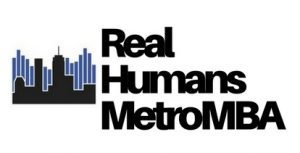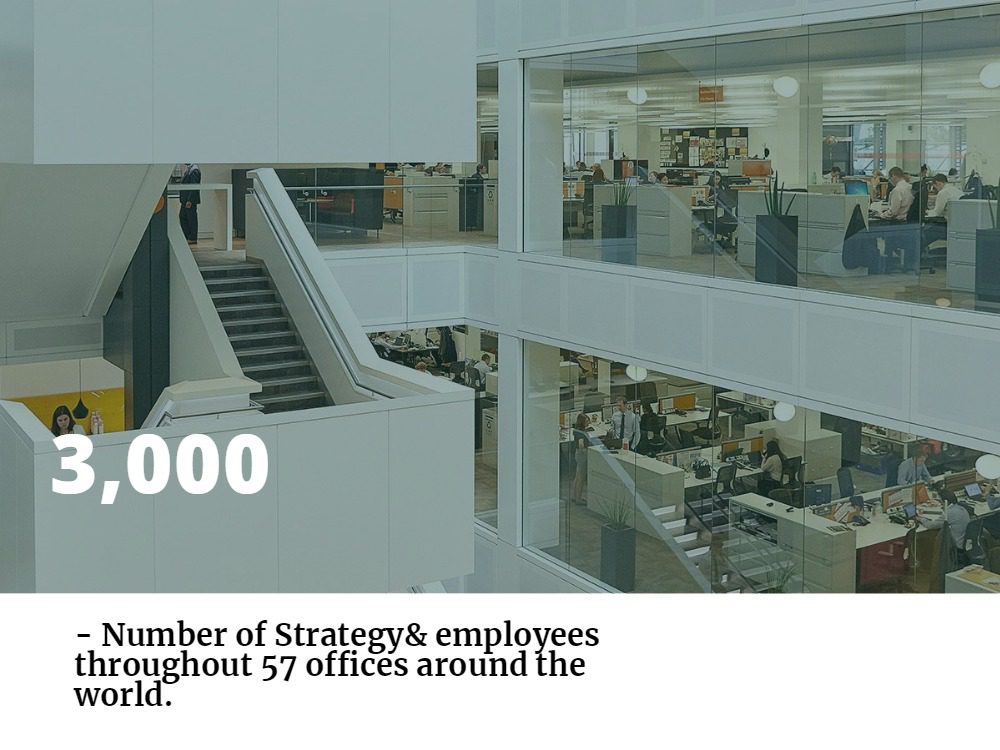Real Humans of the NYU Stern MBA Class of 2019

Clear Admit recently profiled many of the standout students from the NYU Stern MBA Class of 2019, which you can read below.
New York University’s Stern School of Business got the party started this summer as the first leading business school to share a profile for its incoming Class of 2019. That profile, published in late July, revealed a 4 percent uptick in application volume over the prior year. At the same time, the school admitted significantly fewer students—822 this year as compared to 871 last year—which means that those who got in did so against greater odds.

This increased selectivity may have contributed to the rising GMAT scores among those who got the nod. Both average and median GMAT scores increased year over year. The average GMAT score jumped six points, from 710 to 714. The median score increased even more significantly, from 710 to 720. Average GPA, though, slipped slightly, from 3.51 to 3.48.
As the school’s admissions process grew more selective, the enrolled class grew more diverse. The incoming class is 38 percent female, up from 35 percent the prior year. International students also increased to represent 37 percent of the Class of 2019, up from 35 percent in the Class of 2018.
In terms of the work experience they bring with them, more members of the Class of 2019 come from the financial services industry (29 percent) than any other. Another 12 percent of the class came from consulting. Students with government/non-profit, tech, and military backgrounds followed, at 7 percent each.
While some of these statistics hint at both the diversity and the high caliber of the incoming class, nothing brings that to life more than a look at some of the real students who enrolled. We spoke with five of them—drawn from Massachusetts, Texas, Michigan, India, and Lebanon respectively—to learn more about why they chose Stern, how they hope the Stern MBA will help them transform their careers, what advice they would offer to applicants navigating the admissions process right now, and more.
Perhaps not surprising, NYU Stern’s New York City location factored highly into the decision-making process for many of the students we asked. But so too did its community—including how approachable and friendly current students were to prospective students and the school-wide emphasis on IQ + EQ (emotional quotient)—and its curriculum, which has a strong core but also gives students the opportunity to explore electives early on and offers specializations in things like luxury marketing and technology. The reach of its alumni base was also a factor cited by several of the students we spoke with.
Read on to learn more about some standout members of the NYU Stern MBA Class of 2019.
The Differences Between a Full-Time MBA in New York City and Toronto

New York and Toronto are the largest cities in the United States and Canada, respectively. Both are major financial and cultural centers, and home to millions of hard-working students, employees, and businesses.
Both metros are also home to a number of quality business schools, each with their own prestigious full-time MBA programs. How do New York and Toronto compare as cities and as destinations for your full-time MBA studies? Let’s take a deeper dive and see.
Location
The most bustling and populous metro in the United States, New York City is is the capital of the business world. More Fortune 500 companies are headquartered here than in any other city. The Big Apple is not only home to Wall Street and the world’s largest financial institutions, but also media, marketing and advertising companies. New York is an enormous city and, unfortunately, expensive to live in, so it may not be for everyone.
When looking at metros with bustling financial sectors and companies, New York is often is the first to come to mind. But how about it neighbor to the north? Toronto is also considered one of the world’s fast-growing financial hubs. An article on the Huffington Post explains how Toronto has risen into the top 10 of the world’s most important financial centers. According to the Global Financial Centres Index from Z/Yen Group and Qatar Financial Centre, Toronto has surpassed Chicago and Boston to become the second-most important financial center in North America, and eighth in the world.
According to one unidentified New York banker quoted in the Global Financial Centres Index survey, “Toronto seems to get stronger and stronger. A number of our rivals have opened up subsidiaries there.”
New York City Full-Time MBA Programs
- Columbia Business School
- Stern School of Business – New York University
- Gabelli School of Business – Fordham University
- Zicklin School of Business – Baruch College
What stands out about these programs?
A Columbia MBA opens up countless career options and is sure to pay off in the long run. The median starting salaries for Columbia MBAs is $125,000, with 34 percent of full-time MBA of graduates being employed in the financial services industry. Students may assemble their own elective tracks, but the school also provides recommend course tracks for students interested in careers in entrepreneurship, healthcare, marketing, media, real estate, value investing, and social enterprise.
Meanwhile, Stern’s MBA curriculum gives students tons of flexibility, and allows degree seekers to choose one or two MBA specializations, NYU allows up to three specializations from 20 plus options. Stern makes sure that all students enrolled in the full-time program are ready for business school: Stern hosts a mandatory two-week orientation program in August called “Launch” as well as a special “Summer Start” program that allows students the school believes may need additional preparation to earn up to six credits before starting courses with their classmates in September.
Both Gabelli and Zicklin’s full-time programs feature cohort-based structures. Gabelli’s program features a New York immersion experience where, over the course of five days, students are exposed to a number of company visits with corporations like Deutsche Bank, Money.net, and Hewlett Packard. As an alternative to completing a major, Zicklin students may pursue a joint JD/MBA in conjunction with Brooklyn Law School or New York Law School.
Toronto’s Full-Time MBA Programs
- DeGroote School of Business – McMaster University
- Ivey Business School – Western University Canada
- Schulich School of Business – York University
- Ted Rogers School of Management – Ryerson University
What stands out about these programs?
DeGroote’s full-time MBA is a 16-month program ideal for candidates who are early in their career and want to gain advanced business knowledge in order to have more job opportunities. McMaster is one of only four Canadian universities ranked among the top 100 in the world, including by premiere publications like The Financial Times.
Ivey’s full-time program stands out because it can be completed in one year. During the year, students will learn business essentials from Canada’s only case-based MBA program. Students are able to experience real-world business scenarios through more than 300 cases a year, providing them of hands-on experience for how to best handle a variety of business scenarios.
The Sculich School of Business full-time MBA program is non-traditional due to its amorphous teaching format: The organization, pedagogy, and style of classes is determined solely by the most effective way to teach a particular course. This means that while some course instructors make extensive use of case studies, others do not. Other approaches to delivering courses include in-class presentations, role-playing exercises and visiting speakers and business leaders.
Schulich’s program, however, is on the more expensive side when it comes to Toronto metro business schools. The current full cost of the program in 2018-19 is $77,900 CAD for Canada residents, and $99,400 for international residents. While the tuition costs are actually higher than the likes of NYU Stern or the Columbia Business School full-time programs, because of the cost of living in New York City, the price is actually negligible—especially for Canadian residents.
Schulich/NYU/Columbia Full-Time MBA Costs
| York/Schulich | NYU/Stern | Columbia Business School |
|---|---|---|
| $57,000 (Canada Residents) | $69,086 USD | $71,544 USD |
| $77,900 (Full Cost, Canada Resident) | $110,562 (Full Cost, U.S. Resident) | $107,749 (Full Cost, U.S. Resident) |
Ryerson’s full-time MBA stands out thanks to its Management of Technology and Innovation (MBA-MTI) program, which provides graduates with skills in problem-solving, critical thinking, communication and collaboration. Despite it’s technical sounding name, the MBA-MTO is not a technical program. Instead students enrolled in this track graduate with the skills needed to manage within companies that are focused on tech and innovation.
Breaking Down the Numbers
Even for those who do not pay extra for room and board, expenses for U.S. residents studying at many NYC business schools will be higher than their neighbors to the north. According to Numbeo, the cost of living in Toronto is 24 percent less than the cost of living in New York City, and rent is nearly 40 percent less.
However, the value of the individual school tends to favor New York City programs over its Toronto counterparts. NYU Stern is currently the 12th overall on the U.S. News & World Report 2018 ranking, with CBS coming even higher at 9th overall. The ranking comparison remains consistent with The Economist as well, with CBS coming in 9th (again), Stern coming in 14th. The highest ranked Canadian program in The Economist ranking—Ivey Business School—came in 59th.
NYC/Toronto MBA Rankings
| School | Financial Times Ranking (2018) | The Economist Ranking (2017) |
|---|---|---|
| NYU Stern | 23 | 14 |
| Columbia Business School | 7 | 9 |
| Ivey | 90 | 59 |
| Schulich | NR | 69 |
The higher rankings and costs tend to, unsurprisingly, have a high correlation with financial output. MBA graduates from higher-ranked NYC metro schools tend to do better in terms of salary and bonuses. As previously mentioned, CBS Class of 2017 MBA grads pulled in a median annually salary of $125,000. Class of 2017 Schulich grads, in comparison, made an average median salary of around $90,000 USD.
For more information on the best full-time programs, check out our New York City and Toronto metro pages.
Top MBA Recruiters: Finding Your MBA Career at PwC Firm Strategy&

Navigating job applications and interviews after all the hard work of earning your MBA can be tiresome. After devoting a year or more of your time to gaining the skills of a top business professional, shouldn’t future companies be knocking down your door?
It might not be that easy, but there are certainly a number of companies currently seeking the best and the brightest up-and-coming business leaders, who acknowledge the kind of skills an MBA can contribute to their team. Among them is Strategy&, one of the top recruiters of MBA students at business schools throughout the world.
For MBA graduates looking for careers in the consulting industry, Strategy& could be the perfect opportunity to break into the field and develop critical skills in strategy and consulting. And as an MBA graduate with a wealth of knowledge within the industry, companies like Strategy& are probably also looking for you.
About Strategy&
Strategy& was established more than 100 years ago by Edwin G. Booz, eventually being known for most of its life as Booz & Company. In 2014, the firm was acquired by PricewaterhouseCoopers (PwC), when it was renamed to Strategy&. The firm is headquartered in New York City, with more than 57 offices throughout the world. Today, the company features roughly 3,000 employees and more more than $1.3 billion in revenue.
Strategy& functions currently as the strategy consulting team for PwC, offering strategic solutions in an uneven business climate, helping companies to transform, invest in growth, and stay in tune with business trends even through rapidly changing times.

Why MBAs Love Strategy&
Strategy& is an active recruiter from business schools around the world, including top programs like Harvard Business School, NYU Stern, and INSEAD, among many others. The company is also supportive of staff who have not yet earned an MBA but hope to advance their business education. Strategy& even offers junior staff the chance to apply for full MBA sponsorship, and provides flexible work opportunities so students can pursue a degree while still maintaining their career.
The Strategy& consulting experience is shaped in a way that relies on mentorship, with a 1:6 ratio of partners to junior consultants. For MBA students—who have already demonstrated an interest in investing in their growth and education in the field—this type of setting means that class is always in session.
Life at Strategy&
New consultants at Strategy& can expect a clear and structured path laid out at the start of their career, with rapid career progression possible. New associates will advance towards roles as partners, typically spending two to three years at each level along the way.
While undergraduates would begin in associate roles, those with MBA degrees can jump right in at the senior associate level. Senior associates have the opportunity to develop their skills by working closely alongside clients to resolve complex issues and guide clients and their companies towards success. From there, MBAs could move upward into a manager role, then director, and finally partner.
The development of strong mentor relationships is seen as crucial at Strategy&. Mentors will provide a constant source of support for new associates, offering guidance as they move upwards through the company, choosing projects they are passionate about and forming strong professional networks. Mentors will also provide real-time feedback, helping pave the way for a successful career.
Landing a Job at Strategy&
Strategy& is an active recruiter of MBA programs throughout the country, where they may host events on campus and offer direct information to students on applying for positions at the company. Students from any program, even if the school does not actively recruit there, are able to apply directly for their internship and job openings through their website. Jobs are available at a number of the firm’s locations throughout the country and around the globe.
Summer internship opportunities are a great way for students to get their foot in the door at Strategy&, and may end up leading to full time employment. This was the case for Bryan, now a director at the company and based out of Chicago. Bryan interned for the company during the summer while earning his MBA at the University of Chicago Booth School of Business. He completed his MBA in 2011, joined Strategy& as a full-time colleague, and is now a key member of the Technology Strategy team.
“I had the opportunity to do an internship with the firm between my first and second year at business school, and I came away impressed with the caliber and character of the people at the firm,” Bryan said of his experience with Strategy&. “In only nine weeks, the camaraderie and professional bonds that I was able to develop with my teammates, fellow interns and leaders at the firm was special.”
School v. School: NYU Stern or Columbia Business School?

What happens when you pit two of the New York metro’s top business school’s against each other in a head-to-head duel of MBA might? It’s a school vs. school showdown, as we compare Columbia Business School to the Stern School of Business. Let’s take a deeper dive! Continue reading…
Harvard Helps Business Students Take Startups to NYC

Launching a startup isn’t easy, but Harvard Business School is working to change that for its alumni with the start of its new RISE program. Put together by Harvard’s Rock Center for Entrepreneurship, the RISE program will help HBS graduates accelerate the growth of their NYC startups.
With the goal of seeing more of its alumni entrepreneurs make it big, the new HBS RISE program will offer a range of benefits and support. Planned programming will help new enterprises with the many challenges that accompany startup life—from developing culture to hiring employees, building leadership skills, managing boards, raising funds, optimizing sales, and more. The eventual goal is to help small ventures successful scale from just a handful of employees to hundreds.
In order to participate in the program, HBS alumni have to own a company that is revenue generating and has already raised $1 million in capital. These qualifications were set to help ensure that participating companies have the best chance for successful scaling.
YOU MAY ALSO LIKE: More Harvard MBAs Are Turning to Politics
According to Professor Thomas Eisenmann, faculty chair of the Rock Center, the RISE program is all about helping enterprises scale individually. “In the RISE program, HBS faculty members, alongside seasoned entrepreneurs, will convey best practices and frameworks to help entrepreneurs address startup challenges that can make or break a company,” he explained in a news release. “The program has been developed to leverage extensive faculty research on what it takes to successfully scale an enterprise.”
HBS alumni chosen for the program can expect to learn about scaling their businesses from both faculty and peers. RISE will be broken down into sessions, each of which will have curated content developed by other successful alumni entrepreneurs and investors. At the end of each session, a roundtable discussion will allow for candid conversation between peers where founders can discuss challenges and offer advice.
Nine HBS alumni founders have already been accepted into the first RISE cohort, including:
This article has been edited and republished with permissions from our sister site, Clear Admit.
Get Ready for these February MBA Deadlines

Don’t delay your future! Being timely when submitting graduate school applications can increase your chances of scholarships and other not-to-miss opportunities when applying for your MBA. Stay up to date with this month’s MBA admissions deadlines!
New York City
With a application due date of February 21, applicants to the the Columbia Business School EMBA program should be ready for the quickly approaching deadline.
Many other programs in the New York City metro have deadlines coming up in early March, so it’s important to remember that February is a short month! The Tobin College of Business at St. John’s University and NYU’s Stern School of Business both have deadlines within the first couple weeks of March. To see more information on upcoming events and deadlines in New York, click here.
Los Angeles
The Online MBA program at USC’s Marshall School of Business has a deadline approaching at the end of February, while three more schools in the Los Angeles metro have important deadlines quickly approaching. Students interested in applying to the part-time MBA at USC Marshall or both summer and fall starts for an MBA at Mount Saint Mary’s University in Los Angeles should be prepared to submit their applications by the first of March.
Click here for more information on important deadlines in the Los Angeles metro.

The first round of theUSC Marshall Online MBA deadline arrives Feb. 21.
Toronto
Two programs at the Rotman School of Management—the Morning/Evening MBA and full-time MBA—have deadlines coming up in late February. Another deadline quickly approaching for schools in the Toronto metro area is for Rotman’s EMBA program, which is in early March.
More information on Toronto deadlines can be found here.
Philadelphia
February is a busy time for business schools in the Philadelphia metro, with several deadlines approaching throughout February and early March. Programs with a mid-February deadline include the Villanova School of Business Fast Track MBA and EMBA, and it is also the last opportunity for applicants for the Summer Intake Priority Scholarship at Temple University’s Fox School of Business‘ Online MBA. The La Salle University Online MBA also has a quickly approaching deadline in early March.
For a deeper look at upcoming deadlines in the Philadelphia metro, click here.
Washington DC
While there are no upcoming deadlines for February in the Washington DC metro, there are a number of quickly approaching deadlines in early-to-mid March. Applicants to the R.H. Smith School of Business at the University of Maryland should be aware of a deadline on the first of March for the school’s full-time MBA, with other deadlines in mid-March for programs at the George Washington University School of Business and Kogod School of Business.
More deadlines for the Washington DC metro can be found here.
For updated deadline information in Chicago, Boston, Baltimore, Atlanta, Dallas, Houston, Denver, San Francisco, San Diego, Seattle, and London, click here.
